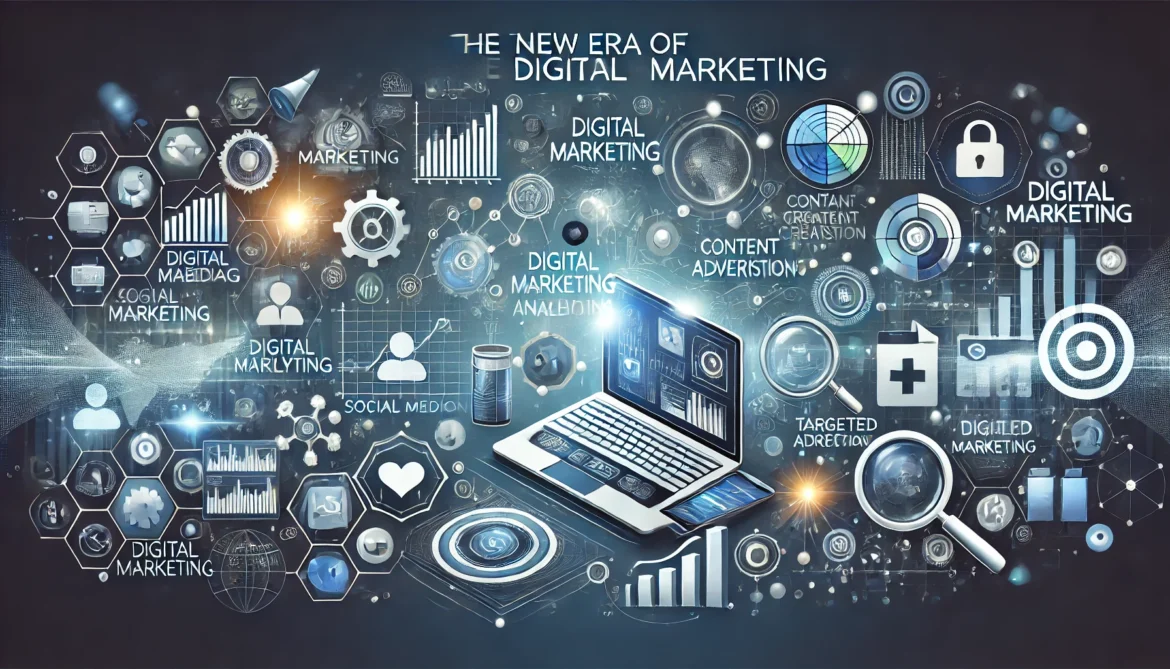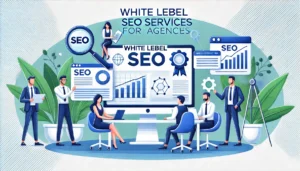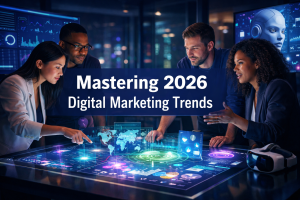Table of Contents
The dawn of the digital age has brought unprecedented changes to how we market products and services. Gone are the days when billboards and TV commercials held undisputed sway over consumer attention. Today, digital marketing is at the forefront, steering businesses toward new horizons and offering strategies such as SEO techniques and understanding where to buy backlinks to improve their online presence.
A few years ago, you might have received puzzled looks if you mentioned ‘digital marketing’ in a meeting. Fast-forward to today and digital marketing is the linchpin of modern business strategies. It’s dynamic, constantly evolving, and, for many, a well-defined pathway to success. Let’s explore why digital marketing represents a new turn of the era and how businesses leverage this powerful tool.
The Digital Landscape
In the modern era, nearly every facet of our lives has an online counterpart. From social interactions to shopping, banking, and even education, the digital landscape has become an inescapable part of daily life. This ubiquity presents a golden opportunity for businesses that digital marketing has been quick to seize.
Digital marketing involves promoting products or brands via one or more forms of electronic media. It includes everything from email marketing, search engine optimization (SEO), social media marketing, content marketing, and pay-per-click advertising. The key advantage? Data-driven insights. Unlike traditional marketing methods, digital marketing provides real-time data and analytics, allowing for precise targeting and optimization.
Search Engine Optimization (SEO)
SEO is an essential component of digital marketing. It optimizes your web content to rank higher in search engine results pages (SERPs). The better your SEO strategies, the more visible your website becomes to people searching for your brand, product, or service via search engines such as Google.
An effective SEO strategy involves keyword research, on-page optimization, link building, and content creation. For instance, integrating long-tail keywords that potential customers will likely search for can improve your site’s relevance and ranking. Moreover, creating high-quality, valuable content can draw organic traffic and establish your authority in your industry.
Content is King
Bill Gates famously said, “Content is king,” in the world of digital marketing, this statement holds more truth than ever. High-quality content is the bedrock of any successful digital marketing campaign. Whether it’s an engaging blog post, an informative infographic, or a compelling video, content captures the audience’s attention and drives engagement.
Effective content marketing strategies focus on addressing the needs and interests of the target audience. Businesses can attract prospects and retain existing customers by providing valuable, relevant information. Furthermore, well-crafted content can position you as a thought leader in your industry, fostering credibility and trust.
Social Media Marketing
The rise of social media has revolutionized digital marketing. Platforms like Facebook, Twitter, Instagram, and LinkedIn have become powerful tools for reaching and engaging with audiences. With the ability to create tailored content and targeted advertisements, social media marketing offers precision that traditional marketing cannot match.
Social media enables businesses to interact directly with their customers, gathering feedback and insights that can be used to fine-tune marketing strategies. Additionally, it’s a perfect avenue for storytelling, helping brands to humanize their image and build emotional connections with their audience.
The Role of Analytics
One of the standout features of digital marketing is its emphasis on analytics. Tools like Google Analytics, SEMrush, and Moz provide in-depth insights into marketing campaigns’ performance. Businesses can track metrics such as website traffic, conversion rates, and user behavior, which are crucial for measuring success and identifying areas for improvement.
These analytics tools also help segment the audience and personalize marketing efforts. By understanding their customer base’s demographic and psychographic characteristics, businesses can create more targeted and effective marketing campaigns.
Email Marketing
Email marketing remains one of the most cost-effective digital marketing strategies. Despite being one of the oldest forms of digital communication, it delivers a high return on investment (ROI). Personalized email campaigns can nurture leads, drive sales, and enhance customer loyalty.
The key to successful email marketing is crafting personalized, relevant messages that resonate with your audience. Automation tools can help manage email lists and campaigns, ensuring the right messages reach the right people at the right time.
The Purchase of Reverse Links
One often debated yet frequently implemented SEO strategy is purchasing reverse links or backlinks. Backlinks are links from one website to another, and they play a vital role in SEO by signaling to search engines that the referred-to content is credible and valuable. While organic backlink acquisition is ideal, the pace of digital competition has given rise to the practice of purchasing high-quality backlinks.
Purchasing backlinks can quickly boost a site’s search engine rankings. However, it is essential to approach this practice with caution. Not all backlinks are created equal; quality matters significantly more than quantity. Links from reputable, high-authority websites can improve your site’s credibility and visibility. Conversely, links from spammy or irrelevant sites can lead to penalties. Therefore, companies must conduct thorough research and choose their link partners wisely to avoid adverse effects.
Future Trends
As we look to the future, several trends are poised to shape the digital marketing landscape. Artificial Intelligence (AI) and machine learning are revolutionizing how businesses analyze data and predict consumer behavior. Voice search is rising, requiring marketers to rethink their SEO strategies. Moreover, the increasing importance of data privacy pushes businesses to be more transparent and ethical in their marketing efforts.
In conclusion, digital marketing is not just a passing trend; it is the new norm in the business world. By embracing digital marketing tools and strategies, businesses can engage with their audience on a deeper level, foster loyalty, and drive growth. As an SEO specialist, the goal is to stay ahead of the curve, continuously adapt to the ever-changing digital landscape, and leverage the wealth of opportunities it presents.









1 comment
[…] Don’t forget to use analytics tools to check how well your campaign is doing. Adopting digital marketing for cryptocurrency makes your efforts broad and flexible. For more on digital marketing strategies, see this useful link on digital marketing tactics. […]